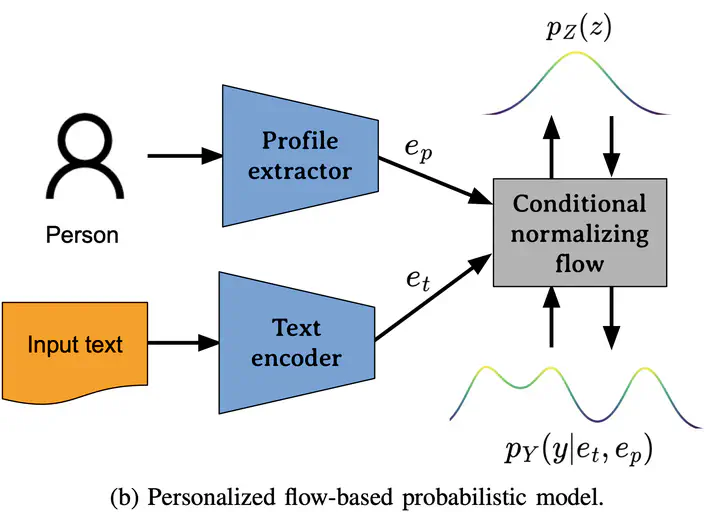
Abstract
Designing predictive models for subjective problems in natural language processing (NLP) remains challenging. This is mainly due to its non-deterministic nature and different perceptions of the content by different humans. It may be solved by Personalized Natural Language Processing (PNLP), where the model exploits additional information about the reader to make more accurate predictions. However, current approaches require complete information about the recipients to be straight embedded. Besides, the recent methods focus on deterministic inference or simple frequency-based estimations of the probabilities. In this work, we overcome this limitation by proposing a novel approach to capture the uncertainty of the forecast using conditional Normalizing Flows. This allows us to model complex multimodal distributions and to compare various models using negative log-likelihood (NLL). In addition, the new solution allows for various interpretations of possible reader perception thanks to the available sampling function. We validated our method on three challenging, subjective NLP tasks, including emotion recognition and hate speech. The comparative analysis of generalized and personalized approaches revealed that our personalized solutions significantly outperform the baseline and provide more precise uncertainty estimates. The impact on the text interpretability and uncertainty studies are presented as well. The information brought by the developed methods makes it possible to build hybrid models whose effectiveness surpasses classic solutions. In addition, an analysis and visualization of the probabilities of the given decisions for texts with high entropy of annotations and annotators with mixed views were carried out.